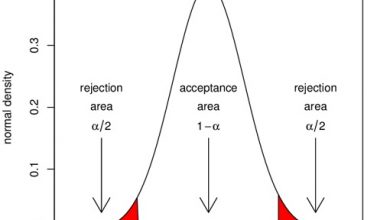Philosophical Knowledge definition features and examples
Mainly characterized by questioning based on logic and reason, philosophical knowledge arose from the need to find wisdom by distancing itself from and even denying mythology as an explanation for reality. In this article we will provide you the definition of Philosophical Knowledge.
Unlike other forms of knowledge, such as science , however, philosophy is not based on empirical evidence, but is, above all, based on concepts.
Philosophical knowledge is a type of knowledge whose main concern is questioning with the aim of finding logical explanations for the fundamental questions that are asked . . However, for the answers, there is no need for proof.
In this article, we will present the main characteristics that define scientific knowledge, as well as examples of how this way of thinking is present in everyone’s daily lives. Check out!
Definition of philosophical knowledge?
Among all types of knowledge, philosophical knowledge is the one that is based on questioning based exclusively on reason and logic.
This is based on the construction of concepts with the sole objective of finding valid answers to basic questions about life, human existence, problems related to everyday matters, such as politics, for example, among others.
Differences between philosophical knowledge and other forms of knowledge
Some of the factors that characterize and define philosophical knowledge are precisely the points that differentiate it from other ways of thinking, such as, for example, science, mythology and religion . .
Philosophical knowledge, by the way, emerged at a time when thinkers were faced with the need to find logical and rational answers to the fundamental questions of life, natural events and human relationships, at a time when these were obtained exclusively from from mythology.
At this time, the first names in philosophy realized that the answers given by mythology were not enough to explain all those factors and, therefore, began to look for solutions based on reason, based on theories that made sense and proved to be incontestable and logical. .
Although philosophical knowledge and religion have some points in common, such as bases in a theoretical system, the latter is based exclusively on faith, which places its principles and doctrines as undoubted truths, while it is precisely doubt that sustains the philosophy.
In relation to scientific knowledge, the difference is subtle: the objective of both types of knowledge is to present answers regarding questions that are asked in relation to specific factors.
However, while science does it through empiricism , that is, experiments that lead to a confirmation or validation of a certain theory, philosophical knowledge does not require that the answers be tested. On the contrary, it is only logic that validates the theoretical abstractions raised by philosophy.
Finally, it is worth remembering that philosophical knowledge is not the same as common sense either. This, far from logic, is based, rather, on cultural issues, customs and habits, unlike philosophy, whose basis is reason and is supported by theories.
Do you still have doubts about the differences between philosophical knowledge and other types of knowledge? Watch the video below and check out a good explanation:
Features of Philosophical Knowledge
Thus, we can conclude that philosophical knowledge is defined by its character:
- Systematic – reflection guided by logic is the basis for the questions raised;
- Elucidative – seeks to unravel concepts and situations that cannot be explained scientifically;
- Critical – analysis and reflection are essential before taking the information into account;
- Speculative – pure theoretical knowledge allows reaching conclusions based on hypotheses and possibilities.
Examples
There are many questions that humanity carries with it since its origin – whatever it may be. Each type of knowledge has different explanations on these issues and all of them are based on their own methods.
Taking the very origin of humanity as an example, philosophical knowledge relies on several names to explain the phenomenon. Each one with a logical and rational theory in which a specific element is the principle for everything that exists.
For Thales of Miletus, for example, this element was water, while for Pythagoras it is the numbers that give rise to everything that exists. Aristotle, on the other hand, proposed another hypothesis : he stated that it was a fifth element, called by him aether , light and incorruptible, which formed all existing matter.
There are other questions that are considered examples of philosophical knowledge. Look:
- What is the meaning of life?
- What is the future of humanity?
- What is moral?
- What is ethics?
- What is time?
- Is there a soul?
We hope you have understood the definition of Philosophical Knowledge.


